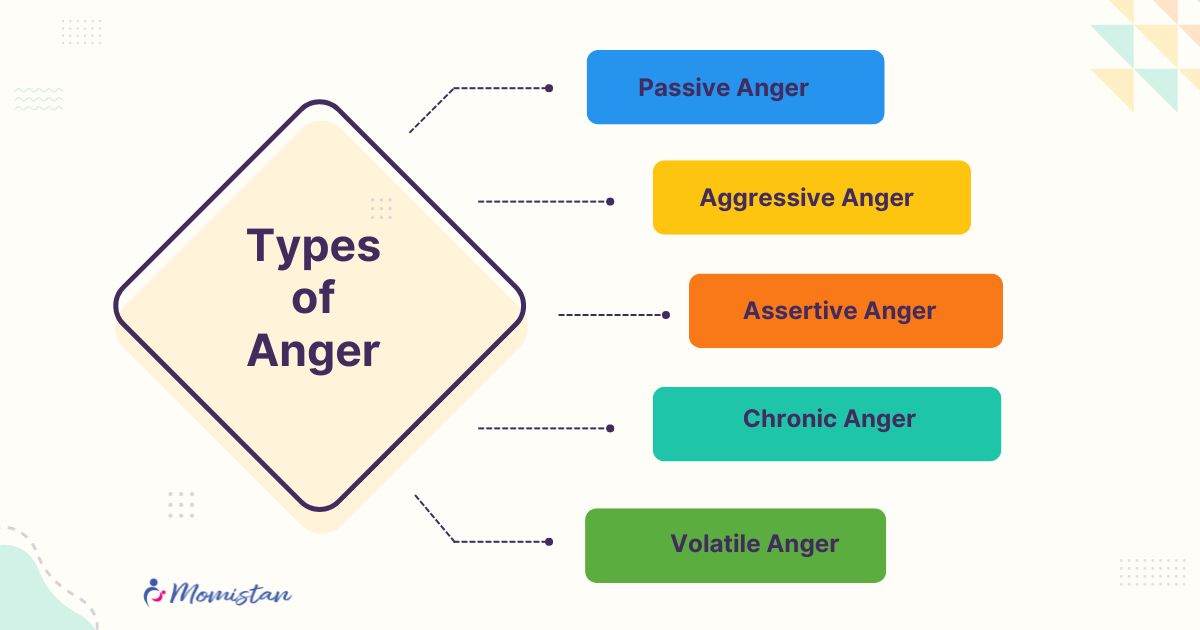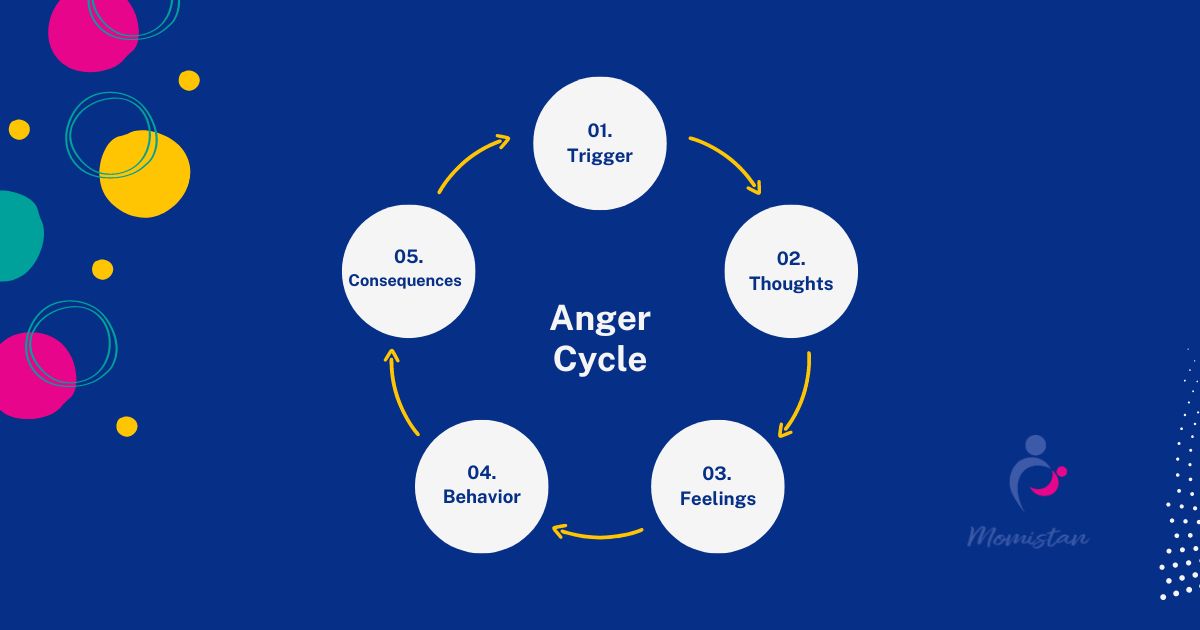Are you a teen who sometimes feels like you’re about to explode? Or a parent of teenager seeing your child get angry frequently. Anger is a normal emotion, but it’s important to learn how to manage it in a healthy way. Learn the importance of Anger Management for teens, also get insight about some tips and strategies to help a teenager stay calm and collected.
What is Anger?
Anger is a strong negative emotion that arises in response to a perceived threat, frustration, or wrong. It’s a common human experience that can range from mild irritation to intense rage.
Here are some key characteristics of anger
- Intense emotion – Anger often involves feelings of frustration, annoyance, or rage.
- Physical reactions – Anger can manifest physically through increased heart rate, sweating, or muscle tension.
- Cognitive distortions – Anger can lead to distorted thinking and irrational beliefs.
- Behavioral responses Anger can lead to aggressive or impulsive behavior.
Anger triggers both emotional and physical reactions, such as an increased heart rate and a surge of adrenaline. Anger becomes problematic when it’s expressed in harmful ways or suppressed for too long.
Types of Anger
- Passive Anger – Suppressed feelings, indirect aggression, or sarcasm.
- Aggressive Anger – Expressed through shouting, violence, or hostility.
- Assertive Anger – Managed calmly and expressed constructively.
- Chronic Anger – Ongoing, long-term feelings of frustration or resentment.
- Volatile Anger – Sudden outbursts over minor provocations.
Why Do Teens Get Angry?
Teens often get angry due to a combination of biological changes; Puberty, psychological, and social factors. Key reasons include:
- Hormonal Changes – Adolescence is marked by rapid hormonal changes that can increase emotional intensity.
- Striving for Independence – Teens seek more control over their lives, which can lead to conflicts with authority figures.
- Identity Formation – The process of self-discovery can cause frustration when teens struggle to understand their place in the world.
- Stress and Pressure – Academic, social, and peer pressure can contribute to heightened emotions, including anger.
- Brain Development – The prefrontal cortex, responsible for reasoning and impulse control, is still developing in teens, making emotional regulation harder.

Anger Management for Teens: Tips and Strategies
Anger is a normal human emotion, but when it becomes overwhelming or destructive, it can lead to problems. Here are some effective strategies to help teens manage their anger:
Understanding Anger
- Recognize the signs – Pay attention to physical and emotional cues, such as increased heart rate, tense muscles, or feeling overwhelmed.
- Identify triggers – Understand what situations or people tend to set you off.
- Express feelings safely – Find healthy ways to express anger, like talking to a trusted friend or family member, writing in a journal, or engaging in physical activity.
Healthy Coping Mechanisms
- Deep breathing – Practice deep, slow breaths to calm the body and mind.
- Mindfulness and meditation – Focus on the present moment to reduce stress and anxiety.
- Physical activity – Exercise can help release tension and improve mood.
- Hobbies and interests – Engage in activities you enjoy to distract yourself from anger.
- Time-outs – Take a break from a stressful situation to cool down.
Seeking Support
Talk to someone – Share your feelings with a trusted adult, friend, or counselor.
Join a support group – Connect with others who are dealing with similar challenges.
Consider professional help -A therapist can provide guidance and tools for managing anger.
Setting Boundaries
- Communicate effectively – Express your needs and concerns calmly and assertively.
- Avoid confrontations – Choose your battles wisely and try to resolve conflicts peacefully.
- Set healthy limits – Establish boundaries with others to protect yourself from negative situations.
Why It Is Necessary To Manage Teens Anger?
Managing a teenager’s anger is essential for several reasons, as it impacts their emotional health, relationships, academic performance, and overall well-being. Here are some key reasons why it’s necessary to address and manage anger in teens:
1. Emotional Well-Being
- Prevention of Escalation – Unmanaged anger can escalate into more serious emotional issues such as anxiety, depression, or aggression. Teaching teens how to recognize and express their anger healthily can prevent these problems.
- Emotional Regulation – Learning to manage anger contributes to overall emotional intelligence. Teens who understand their emotions are better equipped to handle other feelings, leading to improved emotional resilience.
2. Improved Relationships
- Better Communication – Managing anger helps teens communicate their feelings more effectively, leading to healthier relationships with peers, family members, and authority figures.
- Conflict Resolution – Teens who learn to manage their anger are more likely to approach conflicts constructively, fostering positive interactions and reducing misunderstandings.
3. Academic Success
- Focus and Concentration – Anger and frustration can distract teens from their studies and affect their ability to concentrate in class. Managing these emotions allows them to focus better and perform well academically.
- Positive School Environment – Anger management skills can lead to a more positive school experience. When teens learn to cope with anger, they are less likely to engage in disruptive behaviors, creating a better learning environment for themselves and their peers.
4. Healthy Coping Mechanisms
- Skill Development – Managing anger helps teens develop essential life skills such as problem-solving, decision-making, and self-control. These skills are crucial not just during adolescence but throughout their lives.
- Preventing Substance Abuse – Teens who do not learn how to cope with anger may turn to unhealthy coping mechanisms, such as substance abuse, to deal with their feelings. Teaching them healthy strategies can mitigate this risk.
5. Reduced Risk of Violence
- Prevention of Aggressive Behavior – Anger that is not managed can lead to aggressive behavior, bullying, or even violence. By providing teens with the tools to manage their emotions, the likelihood of such behaviors can be significantly reduced.
- Safety – Teaching anger management contributes to a safer environment at home, school, and in the community. It helps prevent situations that could escalate into physical confrontations.
6. Building Self-Esteem
- Empowerment – When teens learn to manage their anger effectively, they gain a sense of control over their emotions. This empowerment can boost their self-esteem and confidence in handling difficult situations.
- Positive Self-Image – Managing anger contributes to a more positive self-image. Teens who can express their emotions healthily are more likely to feel good about themselves.
7. Long-Term Benefits
- Future Relationships – The skills learned in anger management during adolescence can carry into adulthood, leading to healthier relationships in the future.
- Career Success – Emotional regulation is a key trait valued in the workplace. Teens who develop anger management skills are better prepared for professional environments where interpersonal skills are crucial.
8. Promoting Mental Health
- Stress Management – Managing anger is an important aspect of overall stress management. Teens who can cope with anger are less likely to experience chronic stress, which can have detrimental effects on mental health.
- Reduction of Mental Health Issues – Properly addressing anger can reduce the risk of developing mental health conditions, ensuring a healthier transition into adulthood.
Managing anger in teens is vital for their emotional, social, and academic development. Providing them with effective tools and strategies to cope with their anger, parents, educators, and caregivers can help to grow a positive environment that promotes their growth and well-being.
The Anger Cycle in Slow Motion
Imagine a roller coaster. You climb slowly, anticipation building. Then, the drop. A rush of adrenaline, a sense of loss of control. And then, the climb again. This is a lot like the anger cycle.
Here’s how it works:
- Trigger – Something happens that sets you off. It could be a rude comment, a traffic jam, or a disappointing grade.
- Thoughts – You start thinking negative thoughts about the situation or the person involved. These thoughts can fuel your anger.
- Feelings – You begin to feel angry, and your anger might escalate quickly.
- Behavior – You act out your anger. This could involve yelling, slamming doors, or even physical violence.
- Consequences – Your actions have consequences. These could be negative emotions for yourself or others, damaged relationships, or even legal trouble.
Understanding the anger cycle can help you identify your triggers and develop strategies to manage your anger before it gets out of control.

Anger and Self-Harm in Teens
Self-harm is a concerning response to anger in teens. When teens struggle to express their emotions in healthy ways, they may turn inward, using self-injury as a means of coping. This behavior can result from feelings of frustration, helplessness, or emotional overload, and it often serves as a temporary release. Teens who lack emotional regulation skills or feel unsupported may be particularly vulnerable to self-harm and in extreme cases think about suicide.
Addressing this issue requires understanding the underlying emotions and providing teens with healthier outlets and professional support for managing anger.

What Are Unhealthy Ways Of Dealing With Anger?
For teens, unhealthy ways of dealing with anger include:
- Suppressing Emotions – Keeping anger inside can lead to emotional buildup and eventual explosive outbursts.
- Physical or Verbal Aggression – Hitting, yelling, or bullying harms relationships and can escalate conflicts.
- Avoiding the Problem – Using passive-aggressive behavior or ignoring issues creates unresolved tension.
- Engaging in Risky Behaviors – Some teens turn to drugs, alcohol, or self-harm to cope with anger, which worsens the problem.
- Blaming Others – Not taking responsibility prevents personal growth and worsens conflicts.
How Parents And School Help Teens For Anger Management
Parents and schools play a critical role in helping teens manage anger effectively. Through a combination of emotional support, clear guidance, and the development of coping strategies, both parents and schools can help teens better understand and regulate their emotions. Here’s how each can contribute:
How Parents Can Help Teens with Anger Management
Model Healthy Anger Management
Parents should demonstrate healthy ways of managing their own anger. Teens often mimic the behaviors they see at home. By staying calm in stressful situations, parents set a powerful example.
“Children learn more from what you are than what you teach.” — W.E.B. Du Bois.
Encourage Open Communication
Parents should create a safe environment where teens feel comfortable expressing their feelings without fear of judgment or punishment. Listening without immediately reacting or criticizing encourages open communication. Ask open-ended questions like: “What happened that made you feel this way?” or “Can you help me understand what you’re going through?”
Teach Emotional Regulation Skills
Parents can help teens identify their emotional triggers and practice techniques like deep breathing, mindfulness, or counting to ten before reacting.
Daniel J. Siegel, in “The Whole-Brain Child”, writes: “When we help our kids manage their big emotions, we teach them how to integrate the rational part of their brain with the emotional part.”
Provide Healthy Outlets for Anger
Encourage physical activities, sports, or hobbies that allow teens to channel their energy and frustration in positive ways. Activities like jogging, swimming, or even artistic expression such as drawing or writing can be very effective.
Set Clear Boundaries and Expectations
Establishing clear rules about acceptable behavior is important. Teens need to understand that while anger is a normal emotion, there are appropriate and inappropriate ways to express it.
Ross W. Greene, author of “The Explosive Child,” states: “Kids don’t behave well because they’re motivated to. They behave well when they have the skills to.” Setting boundaries teaches those necessary skills.
Seek Professional Help When Necessary
If anger becomes unmanageable or leads to aggressive behavior, it may be beneficial to seek professional help from a counselor or therapist who specializes in teen behavior. Cognitive-behavioral therapy (CBT) is particularly effective for anger management.
How Schools Can Help Teens with Anger Management
Implement Social-Emotional Learning (SEL) Programs
Schools can introduce Social-Emotional Learning (SEL) programs that teach students how to identify emotions, handle conflict, and manage stress. These programs are essential in helping teens develop emotional intelligence and coping mechanisms.
Create a Safe and Supportive Environment
Schools should build an environment where students feel safe and supported. Teachers and staff should be trained to recognize signs of emotional distress and provide teens with the space to express their frustrations in a constructive way.
Offering peer mediation programs where students help mediate conflicts can also reduce anger and teach problem-solving skills.
Encourage Physical Activity
Schools can encourage regular physical activity by offering sports, gym classes, or other physical outlets like dance or yoga. As exercise reduces stress and promotes emotional regulation, these activities can be a great way for teens to channel their emotions.
Schools should also offer extracurricular clubs that focus on physical and mental well-being, such as mindfulness or stress-relief workshops.
Teach Conflict Resolution Skills
Schools can integrate conflict resolution lessons into the curriculum, teaching teens how to navigate disagreements without resorting to anger or aggression. Role-playing exercises in class can provide practical experience in handling stressful situations.
Offer Counseling and Support Services
Schools should have trained counselors or psychologists available to work with teens struggling with anger or other emotional challenges. Offering individual or group counseling sessions can provide students with the tools they need to manage their emotions.
Schools should also promote mental health awareness campaigns to destigmatize seeking help.
Incorporate Mindfulness and Relaxation Techniques
Schools can offer mindfulness training or relaxation techniques such as meditation or breathing exercises during class or in designated calm spaces. This can help teens calm down when they’re feeling overwhelmed.
Joint Efforts by Parents and Schools
Consistent Communication
Parents and schools should maintain regular communication about a teen’s emotional well-being and behavior. By working together, they can reinforce strategies at home and school to help teens manage anger consistently.
Regular parent-teacher meetings can include discussions about emotional development and the challenges teens are facing in their academic and social lives.
Workshops and Training for Parents
Schools can offer workshops for parents to help them understand how to support their children’s emotional development, including anger management. Parents and teachers can work collaboratively to ensure that both the home and school environments are conducive to emotional growth.
Collaborative Discipline Approach
Both parents and schools can adopt a collaborative approach to discipline, focusing on teaching teens how to express their emotions appropriately rather than just punishing bad behavior. Positive reinforcement and constructive conversations can help teens learn from their mistakes.
Parents and schools play an integral role in helping teens manage anger. While parents can provide emotional support and model appropriate behavior at home, schools can teach essential coping skills, offer counseling services, and promote emotional intelligence. Together, parents and educators can help teens develop the tools they need to navigate their emotions, leading to better emotional regulation, improved relationships, and overall well-being.

Final Words
Helping teens manage anger is vital to their development. Both parents and schools play a crucial role by growing open communication, teaching emotional regulation, and providing healthy outlets like exercise. Understanding the biological, psychological, and social factors contributing to anger, we can help teens handle their emotions constructively, preventing future emotional and behavioral issues. Professional support, if needed, should also be considered.
Dear Teenagers and Parents
Anger is a natural human emotion, but it can sometimes feel overwhelming and out of control. It’s important to remember that anger is temporary, and there are healthy ways to manage it.
As a teenager, it’s normal to experience anger more frequently due to hormonal changes, peer pressure, and academic stress. However, it’s crucial to develop healthy coping mechanisms to prevent anger from negatively impacting your relationships and well-being.